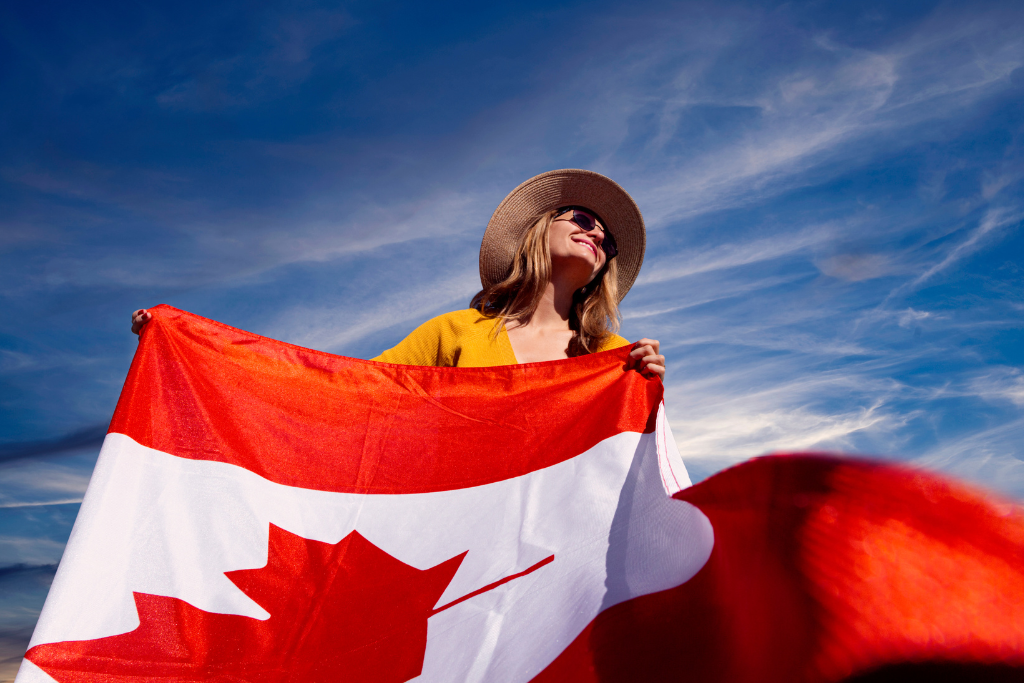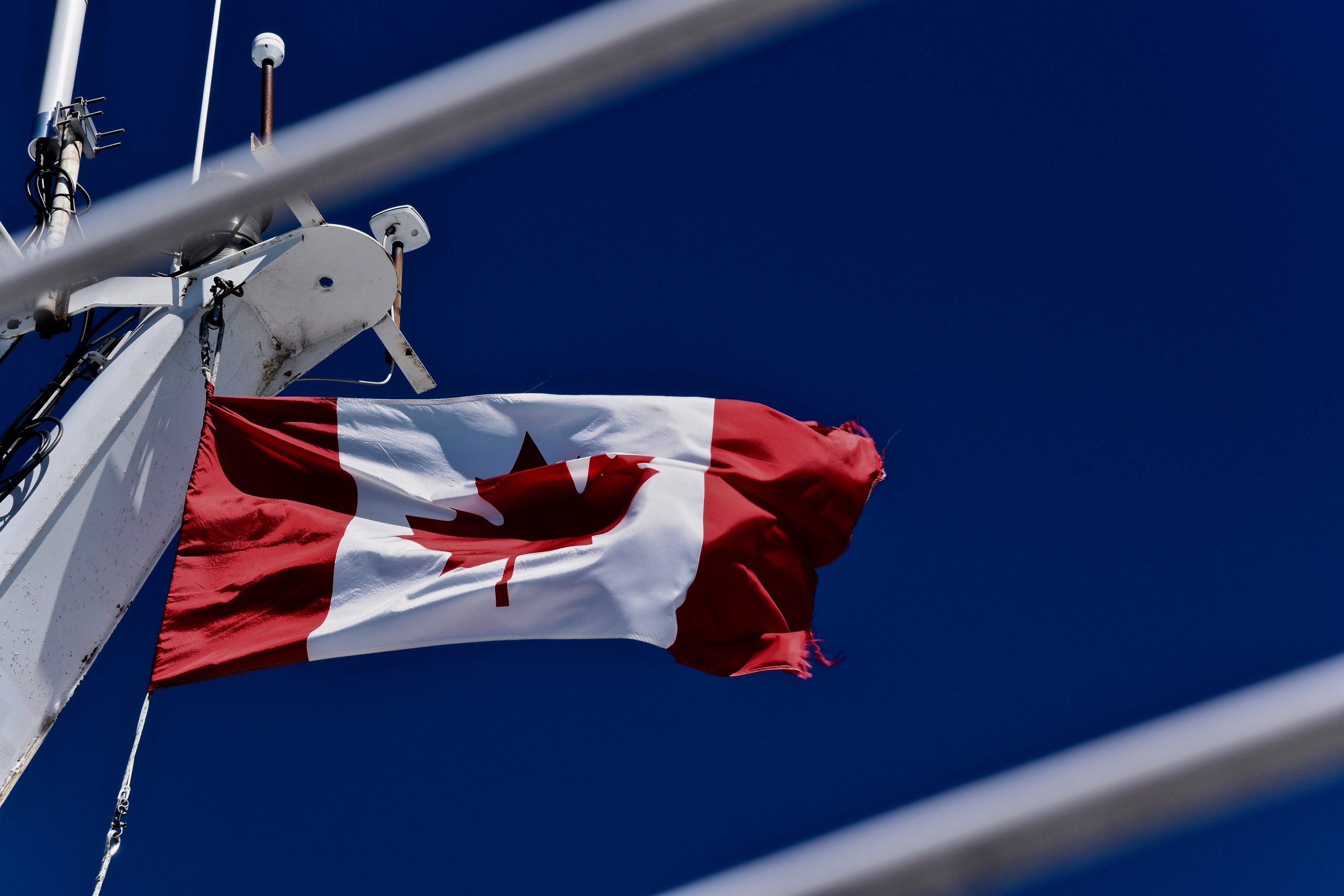1. First steps before moving to Canada
Visa Requirements
Getting a visa is the most important requirement for moving to Canada from the UK. Depending on whether you’re moving to Canada for work or to move in with a family member, the type of visa you’ll need will differ.
Canada Work Visa
A Canada Work Permit, or a Work Visa, is issued to eligible overseas individuals to work in that country for a specific period. A Work Visa can only be applied for after a job offer, or employment contract is received from a Canadian employer. It is not necessary for everyone moving to Canada from the UK to have a work permit. However, it is necessary to determine whether you require a work permit before beginning the process.
Canada has two types of work permits: employer-specific work permits, and open work permits. Citizens of the United Kingdom usually do not need a visa to visit Canada for a short time. For those with other types of British nationality or who intend to travel for an extended period (for example, for work), contact the Canadian High Commission for further information regarding entry requirements.
Working Holiday Visa Canada
International Experience Canada (IEC) Working Holiday Visa is a Canadian government program that allows people between 18 – 35 years of age from carefully selected countries to work in Canada. A Canadian IEC program is probably your best option if you’re under 30 and plan on moving to Canada from the UK. Recently, the demand for IEC has increased, making it a bit more challenging to obtain. You may also be able to become a temporary Canadian worker under the intra-company transfer program, or via the Canada-UK Trade Continuity Agreement, or by travelling under the Global Talent Stream, which offers fast-track work permits for certain occupations, namely tech.
Canada Student Visa
Usually, a Canada Student Visa or study permit is valid for the duration of your program of study plus 90 additional days. During your 90 days in Canada, you can prepare to leave the country or extend your stay. If you are moving to Canada from the UK, you can obtain a Canada student visa if you are enrolled at a designated learning institution (DLI). You must show that you have enough funds to cover tuition fees and living expenses for yourself and any family members who accompany you to Canada.
Among other eligibility requirements, you also have to prove you can cover the costs of the return transportation for you and any family members accompanying you to Canada. Your study permit may include conditions such as whether you can work in Canada, whether you can travel in Canada, the specific date when you must leave Canada, where you may study (a specific DLI listed on your permit), and whether you must submit to an immigration medical exam.
Spouse Visa Canada
The Spouse Visa Canada allows you to sponsor your spouse, partner, or dependent children to become permanent residents of Canada. If you do, you must be able to support them financially and make sure they don’t need social assistance from the government. You can sponsor your spouse, partner, or dependent child if you’re at least 18 years old, and you’re a Canadian citizen, a permanent resident of Canada.
If you’re a Canadian citizen living outside Canada, you must show that you plan to live in Canada when the persons you want to sponsor become permanent residents. You are also eligible for this if you’re able to prove that you’re not receiving social assistance for reasons other than a disability, and you can provide for the basic needs of any persons you want to sponsor. Also, note that your spouse must be legally married to you and be at least 18 years old.
Canada Visa Processing Time
The Canada Visa Processing Time will vary depending on the visa type and time of application. The processing time starts when the immigration center receives your complete application and ends when they decide. Typically, Canada work or study permit processing times are between 10 and 12 weeks. If you apply by mail, the time starts when your application arrives in their mailroom. If you apply online or in person, it starts when you submit your application. Most processing times are historical, meaning they’re measured based on how long it took to process 80% of applications in the past. For some permanent resident applicants who have not applied yet, their processing times are projected, meaning the centre measures them based on how quickly they expect to process 80% of the applications.
Finding a job
In the most recent report of CIC News, covering September 2023, Canada’s unemployment rate—the number of jobless people over the age of 15, divided by the country’s total labor force (those aged 15 and older)—remained consistent at 5.5%, with minimal change from the beginning of the year.
Canada has many job openings, and more so in specific sectors. Here are the most in demand jobs in some of Canada’s major provinces:
Ontario
- Industrial painters
- Industrial butchers
- Machine operators (specifically for mineral and metal processing)
- Agriculturists and harvesters
- Truck drivers
- Orderlies and nurse assistants
- Residential installers
Quebec
- It technicians
- Orderlies and nurse assistants
- Electrical engineers
- Welders
- Nurses
- Early childhood educators
- Media developers
- Civil engineering technicians
British Columbia
- Carpenters
- Hairdressers and barbers
- Construction workers
- Mechanics
- Cooks
- Heavy equipment operators
- Mechanics and millwrights in construction
- Welders
- Electricians
- Bakers
Alberta
- Truck drivers
- Administrative assistants
- Receptionists
- Early childhood educators
- Administrative officers
- Home builders and renovation managers
- General office workers
- Accounting technicians and bookkeepers
- Oil sands labourers
- Anaesthesiologists
CIC News (Oct 2023) & WorkBC (Nov 2023)
Getting there
To move your household goods from the UK to Canada, you have a few options:
- Move them by car: a good option if you don’t have much stuff, and might need to drive your car to Canada anyway.
- Move them by plane: a good option if you’re starting fresh and will only be bringing a few things with you.
- Move them by hiring an international moving company. This is your best option if you have a bigger budget and a lot of stuff. When searching for an international moving company make sure that insurance is included, their prices aren’t extravagant (get many quotes), they have good Google reviews and their customer service is excellent.
Other travel options to reach Canada from the United Kingdom include:
- Taking the Amtrak train, which takes approximately 9 hours from London to Montreal.
- Opting for a Greyhound bus journey, which takes approximately 12 hours.
The shortest flight distance between the UK and Canada is approximately 7 hours and 21 minutes.
Must dos before your arrival
- Update Your Address: Changing your address is a crucial step when relocating. You can easily set up mail forwarding either online or in person before your move.
- Weather Preparedness: Be ready for Canada’s diverse weather. Check local forecasts and pack accordingly, especially if you’re unfamiliar with the region’s climate variations.
- Apartment Hunting: Plan ahead by researching and scheduling apartment visits before your arrival. This proactive approach will help streamline your housing search process and ensure a smoother transition.
Shipping from the UK to Canada
To ship your things from the UK to Canada, you have 2 options:
- Ship them by plane: a good option if you’re starting fresh and will only be bringing a few things with you.
- Ship them by hiring aninternational moving company. This is your best option if you have a bigger budget and a lot of things. When searching for an international moving company, make sure that insurance is included. Their prices aren’t extravagant (get many quotes), they have good Google reviews and excellent customer service.
2. Upon your arrival in Canada
Must dos right upon your arrival
- Get familiar with your neighborhood, and make sure to take note of the important emergency numbers.
- Locate the essential facilities like the nearest hospital, police station, and fire department for your safety and in case of emergency.
- Roaming around the city for work or just simply checking on it, it would be great to purchase a daily transit pass to save money.
Canada offers its residents various convenient transportation options, including buses, ferries, metros, and more. Different cities provide these services through their provincial governments, and you can anticipate a monthly cost ranging from $82.50 to $156.00.
|
City |
Monthly pass cost at regular rate |
|
Toronto |
$156.00 |
|
Vancouver |
$104.90 |
|
Montreal |
$97.00 |
|
Calgary |
$112.00 |
|
Victoria |
$85.00 |
|
Edmonton |
$100.00 |
|
Winnipeg |
$107.80 |
|
Halifax |
$82.50 |
Government of Canada & Transit Sources by Province (Sept 2023)
Healthcare
Canada offers free healthcare to its residents and citizens. Healthcare in Canada is free for doctor visits and hospital visits, but while medicine is partly covered, it’s not free. If you are moving to Canada temporarily, you will have to purchase private health insurance.
In addition to the universal public health insurance offered by each province or territory, residents can opt for extra coverage through their employer or purchase private health insurance.
For comprehensive health coverage, consider purchasing a private health insurance policy or use your employer-sponsored plan.
|
Type of healthcare |
Cost |
|
Employer-sponsored health insurance |
$63.00 |
|
Non-employer-sponsored health insurance |
$50.00 – $150.00 |
|
Gym |
$57.30 |
Numbeo (Nov 2023), HelloSafe (2023) & Insurance Business (Apr 2023)
Temporarily Health Insurance
Again, if you are moving to Canada temporarily, you will have to purchase private health insurance. When you become a permanent resident, you will be covered by the public health care system.
Setting up your cell phone
In Canada, utility costs can vary significantly depending on the province you live in. Generally, utilities in Canada are reasonably priced. If you’re renting a property, you may often find these costs bundled into your monthly rent, making budgeting simpler.
One key component of utility costs is electricity, and its prices may change across provinces due to factors such as energy sources, population density, and proximity to generation sources.
According to Numbeo data, the average basic utility package that includes heating, electricity, water, and garbage will cost $199.02.
The best internet providers in Canada will have bundling options, various speeds, and multiple package options at reasonable prices.
Getting a driver’s license
Depending on the province you’re moving to, you will be required to exchange your driver’s license for a provincial or territorial one between 90 days to 6 months upon your arrival. When it comes to driving in Canada, each province has its own organization that deals with driver’s licenses and vehicle registrations. For example, in Quebec it’s the SAAQ and in British Columbia it’s the ICBC.
Varying by province, Canada has a set of Distracted Driving Laws that include consequences for the following actions while driving:
- Talking on a handheld device
- Texting while driving
- Reading
- Watching videos
- Programming a GPS
- Eating or drinking
- Grooming
- Smoking or vaping
Car Insurance
If you had your car shipped, it is advisable to have it insured in case of any accidents. Once again, be sure to do proper research and pick the car insurance that works best for you.
Setting up a bank account
When moving to Canada from the United Kingdom, it’s essential to establish a local presence by setting up a bank account. Royal Bank of Canada has more than 1,300 branches in Canada, and it is convenient for every local because it is accessible. If you want to change your address with Royal Bank of Canada, you may do so as it is a very straightforward process.
Canada’s Taxes
In 2022, Canada placed 23rd1 out of 38 OECD nations in terms of tax-to-GDP ratio. Canada had a tax-to-GDP ratio of 33.2% in 2022, compared to the OECD average of 34.0%. Canada was also placed 23rd out of the 38 OECD nations in terms of tax-to-GDP ratio in 2021.
Federal Income Tax Rates
In addition to provincial/territorial tax rates, salaries in Canada are subject to federal income tax rates. On average, Canadians are taxed 15% to 33% in federal income taxes on their salaries.
3. Best places to live in Canada
The best places to live in Canada have relatively affordable housing, are safe, will keep you entertained, have good schools, have good job opportunities and are family-friendly.
- Ottawa, Ontario
- Calgary, Alberta
- Burlington, Ontario
- Quebec City, Quebec
- Saskatoon, Saskatchewan
Indeed, many Americans moving to Canada for work are tempted to move to larger metropolitan areas like Toronto, Montreal, or Vancouver that are full of career opportunities.
Setting up home services
In Canada, utility costs can vary significantly depending on the province you live in. Generally, utilities in Canada are reasonably priced. If you’re renting a property, you may often find these costs bundled into your monthly rent, making budgeting simpler.
One key component of utility costs is electricity, and its prices may change across provinces due to factors such as energy sources, population density, and proximity to generation sources.
According to Numbeo data, the average basic utility package that includes heating, electricity, water, and garbage will cost $199.02.
The best internet providers in Canada will have bundling options, various speeds, and multiple package options at reasonable prices.
Should you rent or buy?
Canada’s real estate market has its own distinctive characteristics. In major Canadian cities like Vancouver and Toronto, the housing market can be quite astounding. The average home prices here frequently surpass the national average, earning them a reputation as some of the most expensive places to buy property in Canada.
This can be attributed to factors such as high demand for housing, proximity to stunning natural landscapes, and the vibrant urban lifestyle that these cities offer.
Cost of rent in Canada
|
Area/Neighborhood |
1-bed apartment |
3-bed apartment |
|
Canada (Outside of Center) |
$1,464.67 |
$2,392.89 |
|
City (Outside of Center) |
1-bed apartment |
3-bed apartment |
|
Toronto |
$2,280.60 |
$3,434.43 |
|
Vancouver |
$2,240.70 |
$3,791.40 |
|
Montreal |
$1,221.81 |
$1,979.26 |
|
Calgary |
$1,509.55 |
$2,386.41 |
|
Victoria |
$1,839.34 |
$3,295.16 |
|
Edmonton |
$1,125.04 |
$1,694.15 |
|
Winnipeg |
$1,278.64 |
$1,914.05 |
|
Halifax |
$1,501.56 |
$2,381.35 |
Numbeo (Nov 2023) & Numbeo by city (Sept 2023)
Cost of buying a property in Canada
|
Area/Neighborhood |
Average home price |
|
Canada |
$650,140 |
|
City (Outside of Center) |
Average home price |
|
Toronto |
$1,141,400 |
|
Vancouver |
$1,208,400 |
|
Montreal |
$521,600 |
|
Calgary |
$553,800 |
|
Victoria |
$888,000 |
|
Edmonton |
$374,100 |
|
Winnipeg |
$345,700 |
|
Halifax |
$530,900 |
CREA (Aug 2023) & CREA by city (Aug 2023)
Tenant or Homeowner Insurance
Even as a tenant, immigrants need home insurance. To get yours, make sure to find out about the different insurance companies accredited in Canada.
4. Cost of living in Canada
|
Category |
Monthly cost |
|
1 bed apt rent outside city center |
$2,667.23 |
|
Groceries Numbeo’s grocery list ($85.63 multiplied by 4) |
$342.52 |
|
Utilities Electricity, heating, cooling, water, garbage |
$168.54 |
|
Internet with 60 Mbps |
$72.65 |
|
Transit pass |
$132.00 |
|
Entertainment Meal, taxi, movie |
$108.00 |
|
Gym membership |
$110.97 |
|
Total |
$3,601.91 |
5. The weather in the Canada
In general, it is the same as in the United Kingdom. Even Vancouver has a climate similar to that of the United Kingdom. The rest of Canada enjoys chilly winters and dry warm/hot summers, with the exception of the northern and northeastern areas, which are cool in the summer.
Canada has a diverse climate: the Pacific coast is generally moderate year-round, but the Prairie Provinces (in the country’s central western region) have larger extremes (cold winters and warm summers). The average weather in Canada during summer is 22°C, and during winter it is -7°C.
6. What to do as a local in Canada
Canada State has something for everyone, whether it’s the city’s excitement or the state’s natural beauty, keeping locals busy on weekends.
There are various beautiful national parks in Canada. There’s a park for everyone, whether it’s Banff and Jasper in Alberta, Gros Morne in Newfoundland, or the Cape Breton Highlands in Nova Scotia. Locals can go hiking, camping, and wildlife gazing.
Throughout the year, Canada celebrates a number of festivals that celebrate everything from music and cinema to culinary and cultural diversity. Check local event calendars for upcoming festivals in your region.
7. Fun facts about Canada
- Fun Fact #1: Canada is the world’s biggest producer of maple syrup.
- Fun fact #2: Canada has the most lakes of any country, with almost 31,000 lakes greater than 3 square kilometers.
- Fun Fact #3: Canada is home to over 60% of the world’s polar bears, and Churchill, Manitoba is known as the “Polar Bear Capital of the World.”
Conclusion
Finally, the ideal country for you is determined by your circumstances and choices. Canada is a safe country that is filled with stunning natural beauty and plenty of job opportunities. Expect chilly winters, high costs of living in major cities, and don’t text and drive!
Explore Canada’s neighborhoods, each offering unique characteristics. Setting up home services and understanding the cost of living are essential.
Are you planning to move soon? Check the best Long Distance Moving Companies in Canada to assist you.





